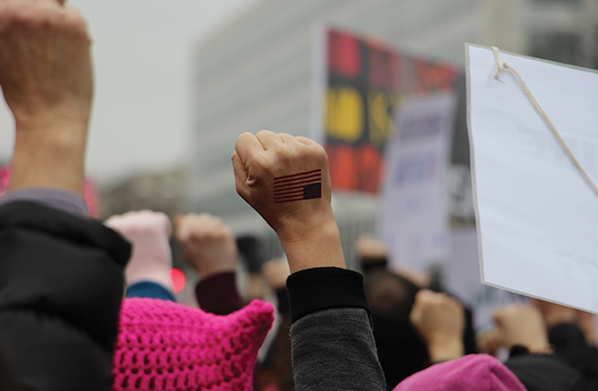Quote of the Day:
Occasionally the real force behind a political ideology is the subconsciously held desire that a certain group of people should not be allowed to rise in relative status.
–Tyler Cowen quoted in USA Today by Glenn Reynolds
Donald Trump has inspired protests against his young presidency that, as far as I can tell, are unprecedented this early in an administration. But the ability of the protestors to explain the sources of their anger hasn't reached a high level of coherence. Why have they reached this pitch of anger?
You only have to watch Tucker Carlson's excellent new show to know that many protestors are unable to explain their anger. For example, last night there was a guest who, "as a gay man," feared Trump. But he was unable to say what gays have to fear from Trump (who took pains to make a pro-gay statement at the Republican convention). When pressed by Carlson, the guest retreated into boilerplate. Did he even know why he was protesting?
Glenn Reynolds looks for the source of the anger in his USA Today column. Reynolds doesn't think it is Trump's actual policies that inspire the anger–portrayed as extreme, some of his pronouncements just aren't that radical. Vetting for immigrants? Hardly something new in the history of the American polity.
I think Reynolds hits the nail on the head:
As I’ve pondered this (anger), I’ve gone back to Tyler Cowen’s statement: “Occasionally the real force behind a political ideology is the subconsciously held desire that a certain group of people should not be allowed to rise in relative status.”
I think that a lot of the elite hatred for Trump, and for his supporters, stems from just such a sentiment. For decades now, the educated meritocrats who ran America — the "Best and the Brightest,” in David Halberstam’s not-actually-complimentary term — have enjoyed tremendous status, regardless of election results.
An election’s turn might see some moving to the private sector — say as K street lobbyists or high-priced lawyers or consultants — while a different batch of meritocrats take their positions in government. But even so, their status remained unchallenged: They were always the insiders, the elite, the winners, regardless of which team came out ahead in the elections.
The people who are leading the protests tend to be America's meritocrats, who were deaf to the complaints of other Americans who didn't like the way this establishment was running things. No longer:
Well, now they’ve heard it, and they’ve also heard that a lot of Americans resent the meritocrats’ insulation from what’s happening elsewhere, especially as America’s unfortunate record over the past couple of decades, whether in economics, in politics, or in foreign policy, doesn’t suggest that the “meritocracy” is overflowing with, you know, actual merit.
It's a meritocracy built mostly on educational credentials. There is nothing wrong with educational credentials, though at times they reflect more becoming credentialed than becoming educated.
But it is a particular kind of elite: it didn't arrive on rugged shores and build a country, it didn't found businesses. It didn't protect America from her enemies. It did well in school.
Unfortunately, it didn't do well enough in school to immediate spot the idiocy of this.


